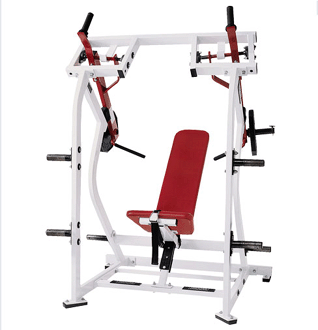There are many weight loss and fitness products around, and by now I’m sure you’ve already noticed. They are advertised online and in magazines, available in stores, and shown repeatedly in TV infomercials. Sometimes they may be supplements or pills, sometimes equipment or machines, and sometimes books or entire programs.
While the types of products may change, one fact remains consistent… the majority of them are complete crap.
This of course leads to one tiny problem. How are you supposed to know which are the ones to avoid? To help you answer that question, here are 10 foolproof ways of discerning whether or not a weight loss or fitness product is crap…
1. There is a celebrity involved.
If you see some type of ad for a fitness product, and there is a celebrity using it, endorsing it, or even just hanging around drinking coffee in the background… the potential for this product to suck is typically higher than usual in my opinion.
So if you happen to spot someone who has their own Internet Movie Database page, you may want to think twice before getting your credit card ready and making your purchase.
2. The term “washboard abs” makes an appearance.
Nothing mentioning the phrase washboard abs in a serious manner is of any use to anyone on this planet. Really, as soon as any laundry-doing object is used to describe what some type of fitness product will do to your stomach, move on as quickly as possible.
And for the record, if your abs ever seriously end up resembling a washboard, seek medical attention.
3. It guarantees results in X amount of time, or when used for X amount of time.
If some type of fitness machine promises “the body of your dreams in just 6 weeks guaranteed” or a weight loss pill says you’ll “lose 30 pounds in just 3 weeks guaranteed,” then it is and always will be crap. Unless your dream is to look pretty much just like you do right now, you will not have the body of your dreams in a matter of a few weeks.
The same goes for those products that promise results if you use their product for an unusually short period of time. For example, a sales pitch that goes “In just 8 minutes a day, you can have the slim sexy abs you’ve always wanted!”
Really the only thing you’ll be doing during those 8 minutes a day is wondering how you wasted your money on crap.
4. It looks like a joke, but somehow… they are serious.
You know when some fitness product comes off looking like a Saturday Night Live sketch, but is actually real and legit? You probably should avoid those products.
5. It’s available in “3 easy payments of $19.95.”
If you are interested in losing weight, increasing muscle, or just getting in some form of better shape, and the product you think will help you achieve this goal costs “just 3 easy payments of $19.95,” consider that a warning that it may be time to turn off the TV and run away.
Not many of the the products making crazy claims and being sold for 3 easy payments of anything will actually live up to whatever those weight loss or fitness claims are.
6. It claims to chisel, sculpt, tone, define, firm or ::insert similar word here:: your body.
The words above don’t really exist. Well, they do, just not in the form they were just used in. See, they are not realistic verbs. They are gimmicky marketing verbs. Words used to give you this amazing picture in your mind of what you’ll look like after you buy this product. Too bad they are all also synonyms for crap.
Here are the things you can realistically do to your body. You can gain muscle. You can lose muscle. You can gain fat. You can lose fat. That’s it. That’s all. That’s the entire list of physical changes you can make. You can’t “firm” your “buns.” You can’t “tone” your “problem areas.” Those phrases are the epitome of weight loss and fitness crap.
Weight training increases muscle. A proper diet and/or cardio activity decreases fat. That’s all. If you happen to gain muscle, and then happen to lose fat, you will very likely appear to look more “toned” and “defined” and “ripped” and “firmed.” While they all sound pretty stupid in my opinion, they aren’t as bad when used as adjectives. However, any product that uses any of the above gimmicky marketing words as a verb to describe what it will do to you is complete and utter crap.
7. There is an asterisk next to a testimonial or before and after picture.
This occurs in print ads, web sites, and TV commercials. You have to look real close. You know that part when someone is telling you something like “I tried every weight loss program and product around. Nothing seemed to work. But then I tried Product XYZ and just look at me now! I lost 40 pounds in just 6 weeks!” …that is your signal to look closely for an asterisk at the beginning or end of it.
Did you find one? If so, look towards the bottom of the ad for the asterisk’s meaning. 99% of the time it will say something along the lines of: *These results are not typical.
Yeah, it really does say that. Of course, you do have to possess the ability to read the last line of an eye chart in order to actually see it. But to their credit, if you could clearly see this product doesn’t typically work as well as the testimonials claim, would you still buy it?
8. There is any type of testimonial or before and after picture, period.
Okay, not everything showing before and after pictures and testimonials is crap, but the a whole lot of them are. Quick, safe, healthy, long term weight loss just is not possible. Without the aid of a chainsaw and a dislike of one of your legs, you will not lose 30 pounds in 3 weeks like supposed users of certain weight loss and fitness products claim.
I know, the pictures look amazing and the stories sound true. Here’s the thing though, they are often lying. Faked pictures are as common as can be. And during the rare time when they aren’t lying, they are just showing you one extremely rare example (usually followed by an asterisk) of the results people have gotten.
If a million people lost 5 pounds, and one person lost 20 pounds, who do you think they will feature in the advertisement? But then again, it’s mighty hard to sell crap if you do it the other way around.
9. It’s a magazine.
You know any fitness magazines? Well, a lot of them are filled with crap. The same goes for the seemingly hundreds of “women’s” magazines that always seem to have a headline on the cover such as “Learn how to drop 10 pounds in time for bikini season” or “10 tips to slim down those thighs.” And it’s usually right next to another headline for a cupcake recipe or something similar. Funny stuff.
I mean, at some point it is possible that the information contained in these magazines could be okay. However, there is a finite amount of actual useful weight loss information in the world. In fact, there probably isn’t even enough to fill one whole magazine, let alone every issue of hundreds of magazines for weeks, months and years.
What does that mean? Well, it means these magazines tend to put out similar information over and over again, just slightly reworded.
This issue might have “20 weight loss secrets” and the next issue might have “20 diet tips.” It’s just the same stuff repeated over and over again with just a slightly different look to it. This time low fat is the way to go. Next time it will be low carb. Five issues later it will be low fat all over again.
Avoid seeking weight loss and fitness advice from a source whose #1 goal is to sell next month’s magazine.
10. It implies that hard work isn’t actually required.
If there is a claim that you can eat whatever you want and some weight loss pill will “do all of the work for you,” it’s crap. If it shows you something and says “just look how easy it is!” be sure to replace the word easy with the word crappy.
No matter what your diet and workout goals are, the honest truth is that it will always require hard work. Constant and consistent hard work for that matter. Anything that claims otherwise or seems too good to be true will be crap 100% of the time.
So then, what’s left?
After putting every weight loss and fitness product through this list, how many of them make it all the way through? Not too many, huh? Really it’s just things like free weights, or a treadmill, or a gym membership, or good food. These don’t fit any of the above descriptions.
But then again, if these are the only types of “products” that make it through, maybe these really are the only types of “products” you really need.




